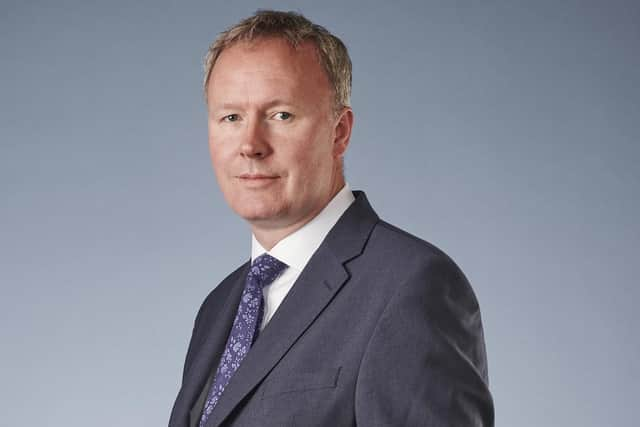Hotels will ride out coronavirus crisis – Richard Rennie


A couple of months ago, I was planning to write an update from the International Hospitality Investment Forum (IHIF) in Berlin.
I expected to be commenting on a buoyant international investment market, warm affection for the Scottish hotel scene and underlying optimism from operators who have capitalised on a booming picture of international travel. Unfortunately, at the 11th hour, the IHIF was cancelled (or, rather, postponed until early May).
Advertisement
Hide AdAdvertisement
Hide AdThe reason for this is of course the spread of the Coronavirus – or COVID-19 as it’s officially known – and the escalating concern across the globe as governments and health authorities scramble to try to contain the spread of the infection.


This is obviously going to have an immediate effect on the local hotels in Berlin and counterparts in Cannes, with international property event MIPIM having suffered the same fate. But the hotel and hospitality industry is braced for more widespread repercussions that could cause a serious dent in trading.
In terms of the international market, visitors from China are top-ranked globally for international tourist expenditure. In the UK, that part of the market spent an estimated £656m in 2018. Here in Scotland, the proportion of our international visitors who came from China was higher than the average for the rest of the UK.
That market has already experienced a significant downturn and we are likely to see a similar drying up in visitors from heavily affected areas, such as northern Italy and South Korea. As the virus spreads, and fears about air travel escalate, we could easily see a massive drop in international visitors. The chains and brands targeting these international visitors are likely to suffer the most. Here in Scotland, hotels in Glasgow have been anticipating a bumper pay day when the COP26 climate change conference comes to the city in November – but doubts have now been expressed as to whether that will be able to proceed.
Domestically, the picture is a bit more mixed. Undoubtedly, business travel will soften and the hotels in the largest UK cities who have priced their offering to fit with median expenses limits could see a substantial drop in bookings. Hotels in London are already reporting immediate drops of approximately 15 per cent. However, there are already some good news stories coming through from hotels who expect a surge in staycations and trips within the UK.
As more stories come to light of foreign hotels in lockdown or entire cruise ships in quarantine, it will be hugely tempting to book an Easter or summer holiday closer to home. Hoseasons said enquiries last week were up 15 per cent year-on-year, while other operators have boasted of rises of up to 50 per cent compared with the same period last year.
At the moment, we are going into uncharted territory. It is likely we’ll see new challenges as well as opportunities emerge.
Will there be a boom as domestic tourists switch their spending to local markets (or if there is serious disruption to normal day-to-day food supplies)? As yet most domestic businesses have not changed their own internal conference arrangements, but as worries over mass gatherings grow we could easily see widespread cancellations of venue hires for conferences. However, the hotels market in the UK is a resilient one. A few years ago the rise of Airbnb lead many to claim that the writing was on the wall for huge parts of the hotels industry. That has turned out not to be the case – and indeed the sector is generally in a robust state of health.
Advertisement
Hide AdAdvertisement
Hide AdWhether the wider market shares the optimism of the organisers of the IHIF – that all will be well to enable the conference to proceed in two months’ time – remains to be seen.
Richard Rennie is a Partner with Burness Paull